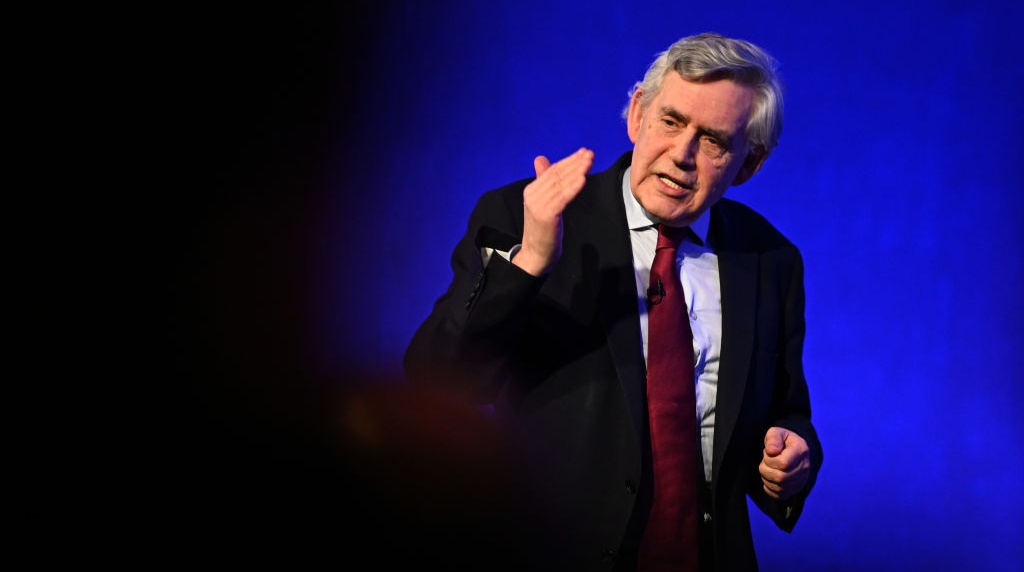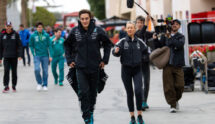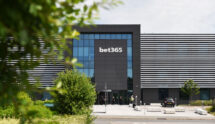Brown Calls for Betting Tax Increase to Help Children in Poverty
As the Autumn budget draws closer, former Labour Chancellor and Prime Minister Gordon Brown has laid out his argument for an increase in betting tax.

Former PM Gordon Brown has made his case for UK betting companies to get the Robin Hood treatment. © Getty Images
Key Facts:
- Former Prime Minister Gordon Brown believes that gaming and betting taxes should be increased.
- His Robin Hood approach would see new tax revenue help lift children out of poverty.
- The horse racing industry would be compensated under his proposal.
- Betting company share price drops as D-Day Autumn Budget draws closer.
“Raising billions by taxing the extraordinarily profitable gambling and betting industry, without affecting lotteries or bingo” is former Prime Minister Gordon Brown’s recommended way and means to remedy child poverty in the UK.
Brown, who, as Chancellor of the Exchequer, abolished the 9% betting duty paid by punters on bets in 2001, also believes that a rise in gambling tax “should be one straightforward budget choice”.
He set out his argument for a betting tax increase in a column recently penned for the Guardian Newspaper.
In a forthright opinion piece, Brown refers to a July 2025 report by the Children’s Commissioner that states: Children in England are facing ‘Dickensian levels’ of poverty, going without basic needs like heating, a place to wash, somewhere to eat breakfast, or safe transport to school.
Scandal and Stain on the Soul
A clearly passionate Brown wrote, “The decisions of previous Tory Governments have pushed 4.5 million children into poverty. This is a national scandal and a stain on our country’s soul. Britain is now enduring the worst levels of child poverty since modern records began.”
“Each night, one million children in the UK try to sleep without a bed of their own. Two million households live without cookers, fridges or washing machines, and many are without toothpaste, soap or shampoo. It is heartbreaking that three million children go without meals because their families run out of food.”
Brown, often quoting verified reports, draws on several alarming figures throughout his public comment, explaining, “the number of homeless children in temporary accommodation in England currently stands at 169,050,” for example.
“In 2010, the Trussell Trust ran 35 food banks in the UK. Now, along with independent ones, there are 2,800,” he points out. Similarly, Brown says, “By next year, every other child in cities such as Manchester and Birmingham will be condemned to poverty.”
Duty Bound on the Percentages
As a recommended means to resolve the crisis, the former PM directed his attention to the gambling industry. “It’s clear that we can identify sources of revenues to fight the war against child poverty,” he states while referencing recent reports from the Social Market Foundation and the Institute for Public Policy Research.
“Excluding the lottery, betting and gaming was an £11.5bn sector last year that incurred only £2.5bn in tax. As much as £3bn extra can be raised from taxing it properly. Remote gaming duty (effectively the tax on online slots games) is about 35% in the Netherlands, 40% in Austria, 50% in Pennsylvania and 57% in tax haven Delaware.”
“Yet the same activity is taxed at just 21% in the UK, raising only £1bn. Applying a 50% levy – much less than the 80% tax on cigarettes and the 70% tax on whisky – would raise £1.6bn more.”
“Raising the general betting duty on bookmakers’ profits from 15% to 25% could generate an additional £450m, after returning £100m as additional support to boost the horse racing industry.”
Brown Would Blunt Racing’s Axe
Brown’s suggestion that horse racing would benefit from additional funding could work to pacify the British Horse Racing Authority (BHA), which is currently running a self-explanatory public campaign called ‘Axe the Racing Tax‘.
🤝 Our thanks to @SallyJameson for highlighting the potential impact on British racing and her Doncaster constituency of the Treasury’s gambling tax harmonisation proposals.
We look forward to further discussions with @hmtreasury. #BackBritishRacing #AxeTheRacingTax pic.twitter.com/8PVq1pnxpE
— British Horseracing Authority (@BHAHorseracing) July 1, 2025
In early July, the BHA stated that the economic analysis it had commissioned calculated that the introduction of a 25% tax rate would hit racing’s finances with a £97m loss. It was Brown, as Chancellor of the Exchequer, who introduced a 15% tax on bookmakers’ gross profits, shifting the burden from punters to the industry from January 2002.
“To achieve parity with their online equivalents, machine game duty payable on the revenue from in-person slot machines should also increase from 25% to 50%. According to IPPR estimates, this would raise an additional £880m,” Brown continued.
“The Government could then start to reduce child poverty. Unlike almost all other businesses, most gaming and betting is exempt from VAT. Its most addictive practices are responsible for social harm that costs the NHS and other public services more than £1bn a year.”
Brown Adds Weight and Influence
The incumbent Chancellor of the Exchequer, Rachael Reeves, is currently preparing her autumn budget. It is likely to take place in early November and, with her pledge not to raise income tax, national insurance or VAT while trying to overcome a £41.2bn deficit, she has her work cut out.
Observers believe a hike in gambling taxes is inevitable. However, that was the case in 2024 – Labour’s first Budget in 14 years – when Reeves resisted the temptation to increase the rate of taxation paid by the UK’s betting firms.
As an MP for almost 32 years, including 13 years in the UK Cabinet (10 as Chancellor of the Exchequer, three as PM), Brown’s sentiments will carry plenty of weight amongst the current Labour hierarchy and, ominously for the betting firms, Reeves recently met with the former leader.
-> Almost 1.7 million children (1,665,540) are now impacted by the two-child limit, up 40,000 from last year, affecting one in nine UK kids and fueling calls for its abolition! pic.twitter.com/6XL1I0KD39
— Darren Fower ✊✊🏿🏴 (@Darren_Fower) August 10, 2025
“Like Gordon, I am deeply concerned about the levels of child poverty in Britain. No child should grow up hungry or parents not be able to afford the basics for their family,” she reportedly said after their meeting.
A Spectator That Is Not Sold
The Spectator, an opinionated weekly British magazine focusing on politics, culture, and current affairs – normally reporting on them in a provocative style – was quick to take Brown to task. Twenty-four hours after his opinion piece was circulated, it published a riposte penned by author and journalist Ross Clark.
His opening salvo made his feelings on Brown’s proposals clear: “As the man who first gave Britain a £150 billion deficit, I don’t think Gordon Brown is the best person to advise the current Government on its fiscal policy,” he critiqued.
According to Clark, “The government last year spent £313bn on welfare, £137.8bn on children and people of working age. Given that the latter bill is forecast to rise to £161.7bn by 2029/30, a couple of extra billion from the gambling industry will not make much of a difference – it would quickly be lost in the general welfare budget.”
More or Less to Suppress?
Clark suggests that Brown’s ideas have more holes than a chunk of Swiss cheese. “He [Brown] seems to flip on the purpose of his proposed gambling taxes. He starts laying into the gambling industry, writing that ‘its most addictive practices are responsible for social harm that costs the NHS and other public services more than £1bn a year’.”
Clark asks, “What exactly does Brown want? Does he want to discourage gambling, or does he want to raise extra revenue, because the two aims are in obvious conflict?”
“If you discourage an activity through taxing it heavily, you then suppress its revenue-earning potential, just as the Government is discovering through its windfall tax on oil and gas production and VAT on private school fees.”
Figure Fall Points to Profit Loss
The last betting tax rise took effect in April 2019 when Remote Gaming Duty – specific to online casino-style games offered to UK customers – increased its tax rate from 15% to 21%.
Introduced by Chancellor Philip Hammond in the 2018 Budget, it was designed to offset the tax revenue lost from betting shop Fixed Odds Betting Terminals’ maximum stakes being lowered from £100 to £2.
On Tuesday, Entain, the parent company of well-known British betting firms Ladbrokes and Coral, announced its first-half earnings were above market expectations, citing strong performance in its key UK and Ireland markets.
Nevertheless, the London Stock Exchange FTSE 100 company saw its share price drop four percentage points within hours of the market’s opening. Since the beginning of July, Entain’s value has dropped by 12% – presumably driven down by analysts concerned that increased taxes could hit future profits.

 Spin the Reels of the Pharaoh’s Last Wish Slot from Relax Gaming
Spin the Reels of the Pharaoh’s Last Wish Slot from Relax Gaming
 Stormcraft Studios’ New Slot Thunderstruck Stormblitz Out Now
Stormcraft Studios’ New Slot Thunderstruck Stormblitz Out Now
 F1 Is Back, Starting With Netflix’s Drive to Survive on Friday
F1 Is Back, Starting With Netflix’s Drive to Survive on Friday
 Leading UK Betting Site Suffers From Costly Friday Downtime
Leading UK Betting Site Suffers From Costly Friday Downtime